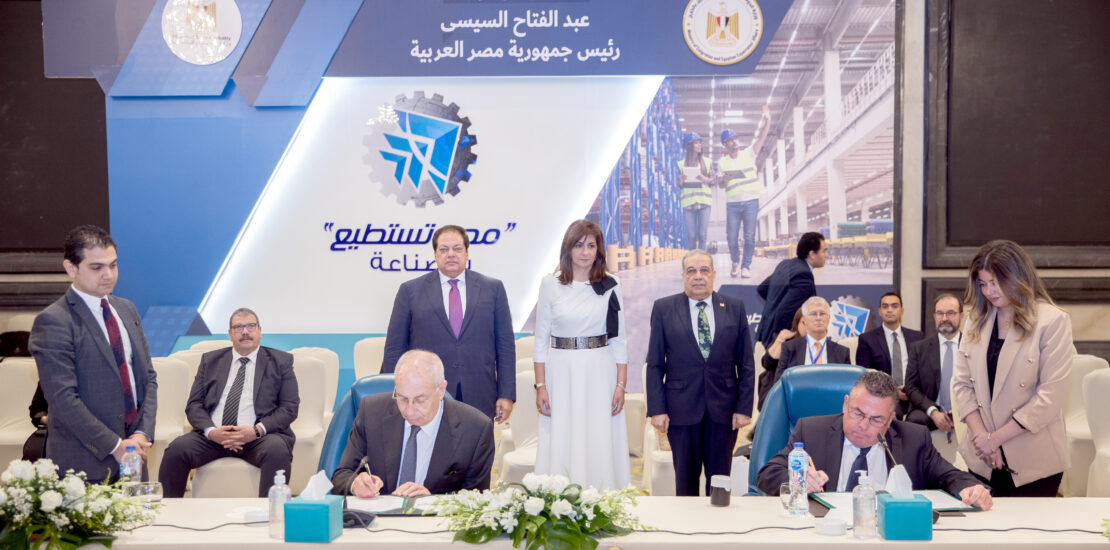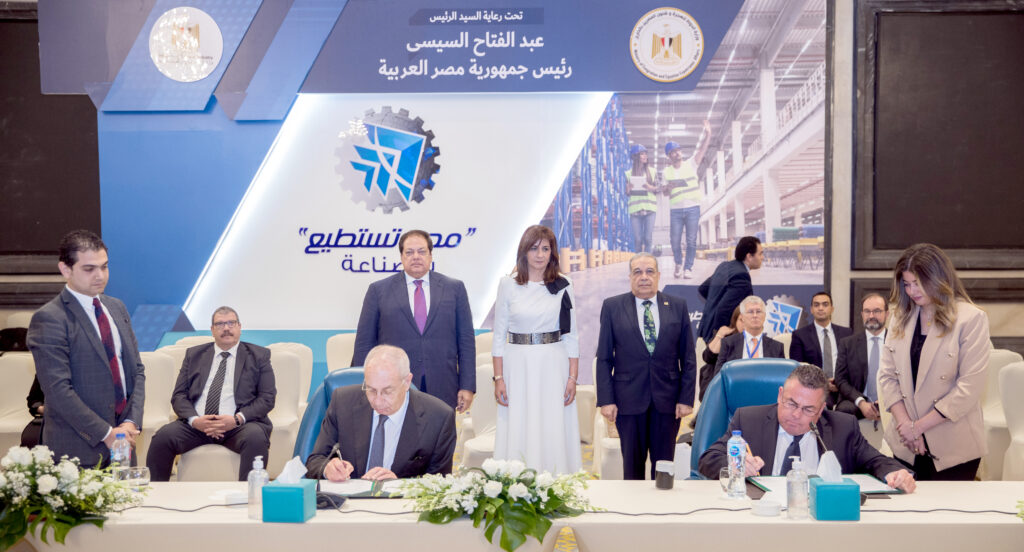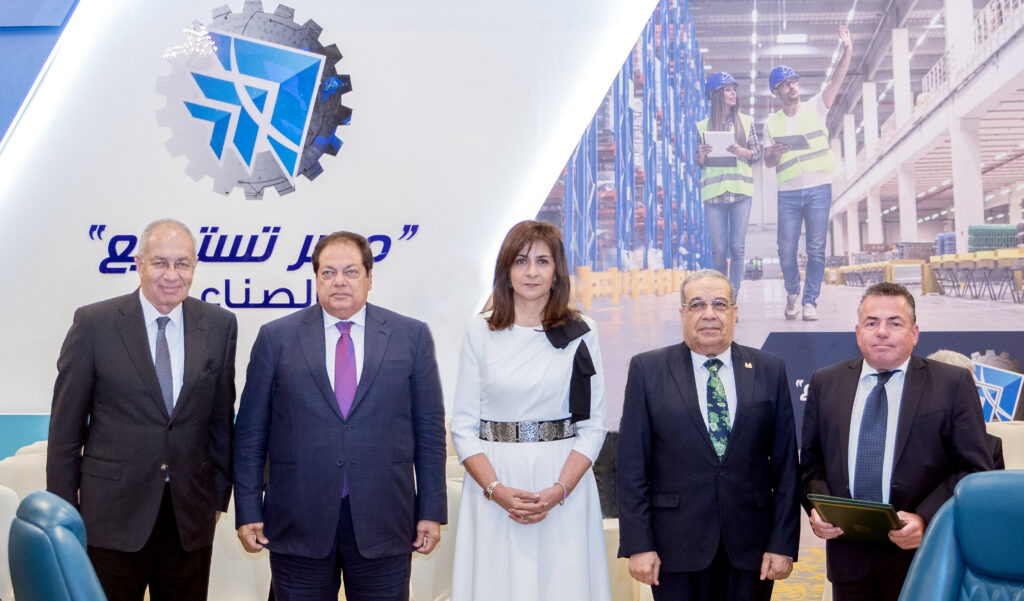- June 1, 2022
- Posted by: Ahmed Abdelatif
- Category: 2022, EN


The General Authority for Suez Canal Economic Zone (SCZONE) signed a memorandum of understanding with H2-Industries Inc. to build a new Waste-to-Hydrogen facility at a new greenfield site in East Port Said, a project with an estimated cost of US$4 billion.
Ambassador Nabila Makram minister of Emigration witnessed the signing between Eng. Yehia Zaki, SCZONE’s Chairman, and Mr. Michael Stusch H2 Industries CEO, along the sidelines of the “Egypt Can” conference that is held by The Egyptian Ministry of Emigration.
“This agreement between SCZONE and H2 industries is to pave the way towards producing green hydrogen project from waste recycling in East Port-Said integrated zone”. Eng. Yehia Zaki, SCZONE’s Chairman declared.
“The MOU is not mandatory until H2 industries finish all the feasibility studies we need to go ahead with the final contract coinciding with COP27 next November” Zaki added.
“This project has the double benefit of creating valuable clean hydrogen while addressing the important issue of waste management by using organic waste, including plastic waste. This is just the first of 3 international projects where governments, around the globe, realize that organic waste and especially plastic waste, if treated correctly, can be a valuable asset and used to generate significant amounts of clean energy. With our project in East Port Said, ” Michael Stusch said.
H2-Industries will produce clean hydrogen powering Egypt’s domestic energy transition and allowing it to become an exporter of clean hydrogen and a global leader in a new hydrogen economy.
“We are convinced that Waste-to-Hydrogen power plants, with its unique impact on local GDP, local environment, and low-cost energy supply will become a significant part of each country’s energy portfolio, especially in Africa”, added Mr. Stusch.
This project targets a production capacity of 300,000 tons of green hydrogen per year, which means that the power plant will be able to dispose of 4 million tons of Municipal Solid Waste (MSW) per year, transported by a fleet of hydrogen-powered waste trucks which can be transported and used to fill storage tanks.

